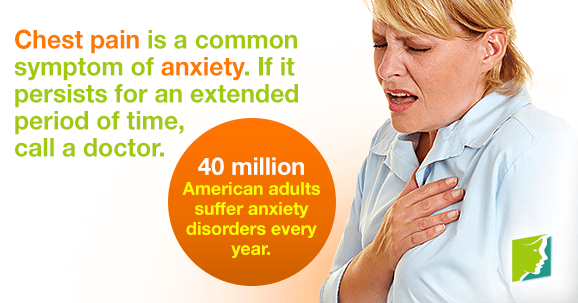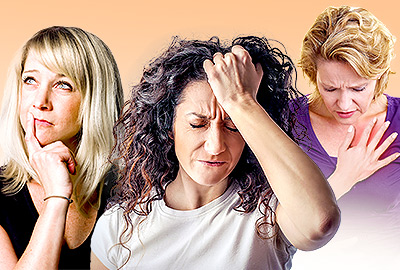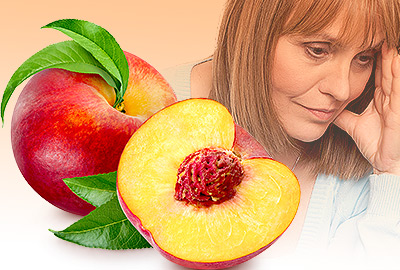Around 40 million American adults are affected with anxiety disorders in a year. Anxiety is a psychological condition that is characterized by the intense feelings of worry. Likewise, chest pain is a common symptom of anxiety. There are several treatment options when dealing with anxiety, but seeking professional help is recommended if chest pain persists or worsens.
Symptoms
Common symptoms of anxiety can be categorized into either physical or psychological. Chest pain is a common symptom of an anxiety attack. People often mistake these chest pains for heart attacks, but it is important to know that it should subside after a while. People who are having an anxiety attack usually experience difficulty breathing, numb hands, and muscle tension.
Additional physical symptoms of anxiety include:
- Sweating
- Dizziness
- Increased heart rate
- Insomnia
- Headaches
Psychological symptoms can include:
- Feelings of dread and intense fear
- Restlessness
- Irritability
- Difficulty concentrating
Causes
Hormone fluctuations are one of the primary causes of anxiety in women due to estrogen's key role in controlling emotion and mood.
Other factors that can trigger anxiety include:
- High stress levels
- Genetics
- Certain medications
- Excessive caffeine intake
- Emotional or physical trauma
- Lack of exercise
- Poor diet
Treatments
There are many treatments that can help with chest pain and anxiety symptoms. These are:
A healthy diet
Some studies have shown that some foods make the body feel calmer while other foods can act as stimulants to stressful events. For example, middle-aged women use to turn to alcohol to feel better in a short time. Your diet is important, and what you eat affects how you feel. If you are experiencing chest pain and anxiety, making some modifications to your diet may help alleviate your symptoms. Try to eat a healthy diet with plenty of fresh vegetables and fruits. Eating more vegetables and staying away from unhealthy foods will help keep your anxiety in check.
Exercise
Exercising is vital in reducing stress and releasing “feel-good” neurotransmitters, like serotonin, in the brain. Exercising regularly has been shown to improve mood, increase energy, and counter anxiety symptoms. The general recommendation is to get around 30 minutes of aerobic activity every day, or at least five times a week. Swimming, cycling, and yoga are all good forms of low-impact workouts that can promote relaxation and reduce anxiety symptoms.
Having a solid support system can also be very beneficial in dealing with anxiety. Talking with close friends and family about what you are experiencing will help relieve stress and allow them to have a better understanding your condition. Home remedies are popular natural alternatives to prescription drugs, for those that want to take the holistic approach. Benefits of home remedies include low risk compared to prescription drugs and commonly a lower cost. Likewise, skullcap, kava root, and valerian are all sedative herbs that have been known to help ease anxiety.
Sources
- National Institute of Mental Health. (n.d.). Anxiety Disorders. Retrieved October 1, 2014, from http://www.nimh.nih.gov/health/publications/anxiety-disorders/index.shtml
- Office on Women's Health. (2012). Anxiety disorders fact sheet. Retrieved October 1, 2014, from http://www.womenshealth.gov/publications/our-publications/fact-sheet/anxiety-disorders.html




